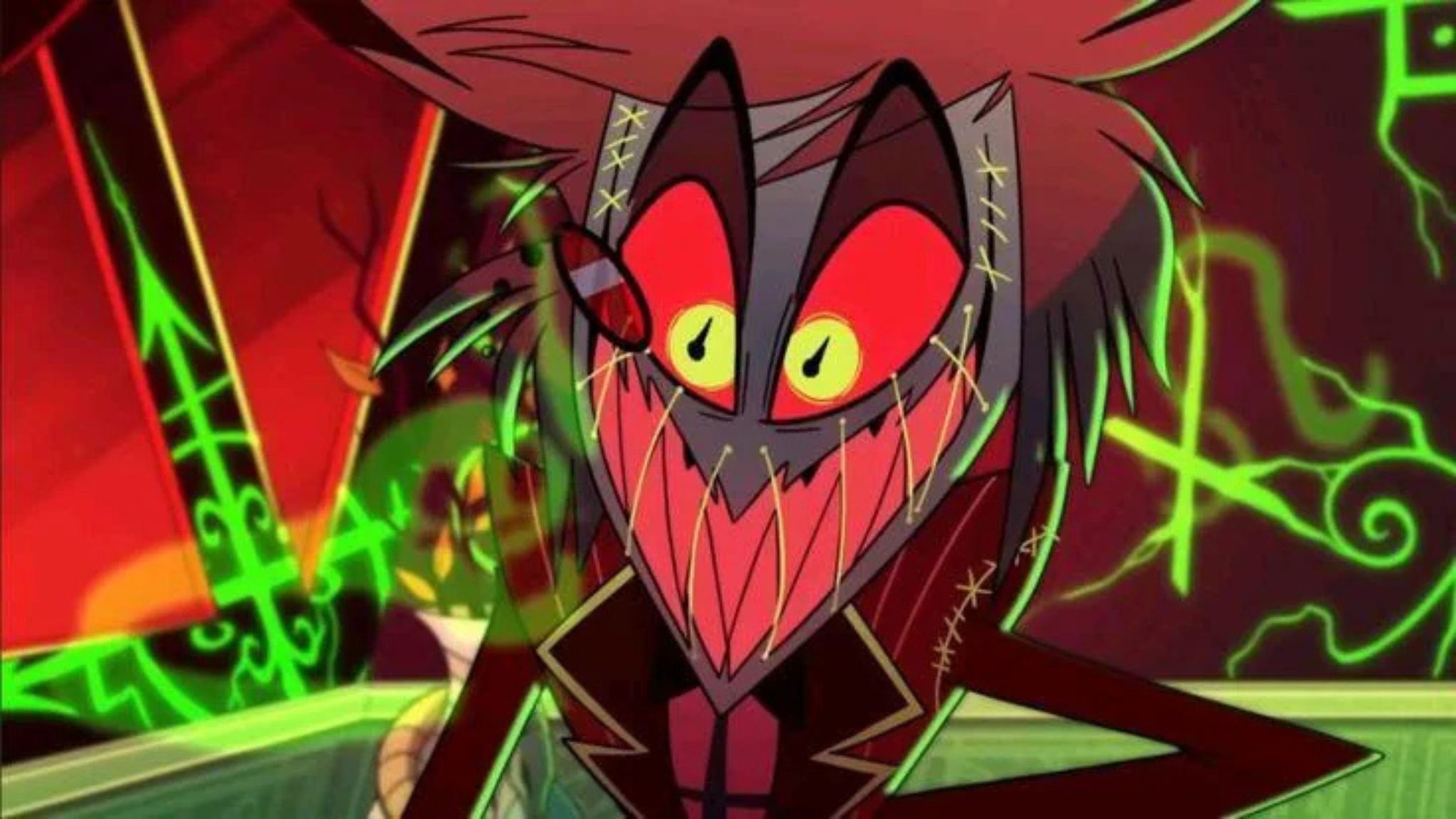
Amir Talai’s portrayal of Alastor, the Radio Demon, in the popular Prime Video series Hazbin Hotel, is a brilliant example of controlled energy. Alastor is a charming but frighteningly powerful ruler of Hell, known as the most powerful sinner, who carefully conceals his true motives with a classic radio effect and a disturbingly unchanging smile. This isn’t just a visual detail—the grin is a deliberate mask he always wears. While Alastor is famous for his dramatic behavior and musical performances, it’s this carefully maintained composure that has unexpectedly resonated with viewers, creating a deep connection with the character.
Talai, in a recent interview with ComicBook about Hazbin Hotel Season 2, explained that Alastor’s power comes from the idea of “masking”—the pressure people feel to fit in, even when they don’t. Talai described how the act of constantly pretending to be okay—like Alastor always smiling to hide his true feelings—is something many people can relate to. This shared experience connects the character not only to those in the neurodivergent community but also to anyone who feels like an outsider just trying to get by.
Alastor’s Constant Smile is a Reflection of “Code-Switching” That Many Rely on For Social Survival

Within the wild and unpredictable world of Hell, Alastor is remarkable for how calm and collected he always appears. He maintains complete control, and his smile never fades. He even tells Charlie that a smile is a powerful way to keep others uncertain. According to Amir Talai, this unwavering composure is what makes Alastor so appealing, even if fans don’t fully realize why. His smile isn’t a sign of true happiness; it’s a way to protect himself and manage how others see him.
Talai explained that people frequently hide their true selves, a behavior known as ‘masking,’ particularly when they’re in new or stressful situations. This is common for everyone, but it’s especially prevalent within the neurodivergent community, where individuals may mask to fit in, and also among neurotypical people who feel pressure to conform socially.
I get asked if I’m always smiling while recording. The answer is no – that’s the animators’ job! I just focus on portraying the emotions of the character. If Alastor is angry, I play angry. If he’s frustrated, I play frustrated. I think Alastor is always ‘on,’ always performing a role, and honestly, we all do that to some extent. We all hide our true feelings in different situations. As a person of color in Hollywood, I’m used to masking my emotions, especially when I’m in a situation where I’m the only one who looks different. I’ve been in rooms where people are talking about how much they value diversity while I’m the only person of color present. I think a lot of people can relate to that side of Alastor, and it’s something I understand personally, so it feels natural to play.
Feeling like an outsider often means feeling pressured to prove yourself. For Alastor, his unsettling smile is a performance – a way to appear in control when he’s actually bound to Rosie. As a human, he traded his soul to Rosie for power in the afterlife, a desperate attempt to understand death and ensure no one in Hell could ever see his true weakness or intentions.
Many fans, especially those who feel marginalized, connect with Alastor’s constant need to act a certain way and hide his true emotions. Seeing such a powerful demon forced to carefully control himself makes his struggles relatable, turning him into more than just a villain – he becomes a symbol of the pressures many people experience in everyday life.
Constantly Being “On” Is an All-Too-Relatable Burden

Talai believes everyone engages in some form of masking – changing how they act to fit in. He compares the character Alastor’s calculated behavior to the way marginalized communities often have to carefully adjust themselves to feel accepted in different spaces.
Let’s talk about how women often feel pressured to control and display their emotions. Many fans, especially those who are neurodivergent, connect with the character Alastor because he hides his true feelings – a practice called ‘masking.’ This is something a lot of neurodivergent people do to navigate social situations, but it’s also common for anyone to present a different face to the world, and I think that’s why so many people find him relatable.
Maintaining a constant, cheerful persona is draining, even for a supernatural being like Alastor. He’s completely dedicated to this act, likely to achieve some hidden objective, and while it contributes to his power, it also demands relentless effort. This constant performance and apparent lack of genuine emotion make even small cracks in his composure incredibly compelling. Viewers recognize the exhaustion of always pretending, and see echoes of their own struggles in a character who never lets his smile fade.
Alastor’s mask isn’t simply a stylish detail; it’s a powerful representation of the emotional toll it takes to navigate life and succeed when you’re seen as different or an outsider.
What do you think? Leave a comment below and join the conversation now in the ComicBook Forum!
Read More
- Best Controller Settings for ARC Raiders
- Survivor’s Colby Donaldson Admits He Almost Backed Out of Season 50
- Gold Rate Forecast
- Where Winds Meet: How To Defeat Shadow Puppeteer (Boss Guide)
- How to Get the Bloodfeather Set in Enshrouded
- Meet the cast of Mighty Nein: Every Critical Role character explained
- How to Build a Waterfall in Enshrouded
- Frieren Season 2 Drops First Look at Episode 1 Ahead of Crunchyroll Premiere
- 1998 Fighting Game Secretly Re-Released After 27 Years With Rollback Netcode
- Uncovering Hidden Order: AI Spots Phase Transitions in Complex Systems
2025-11-14 03:12